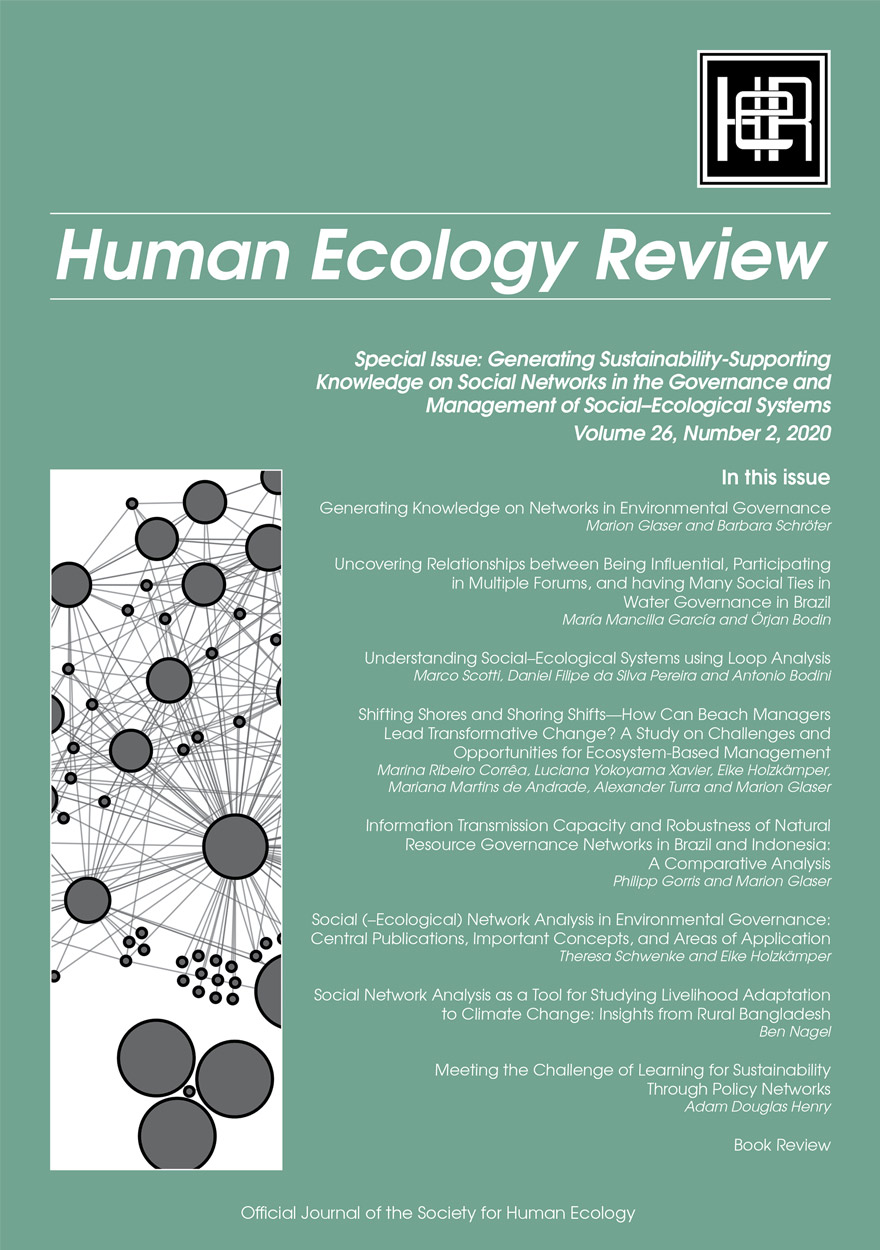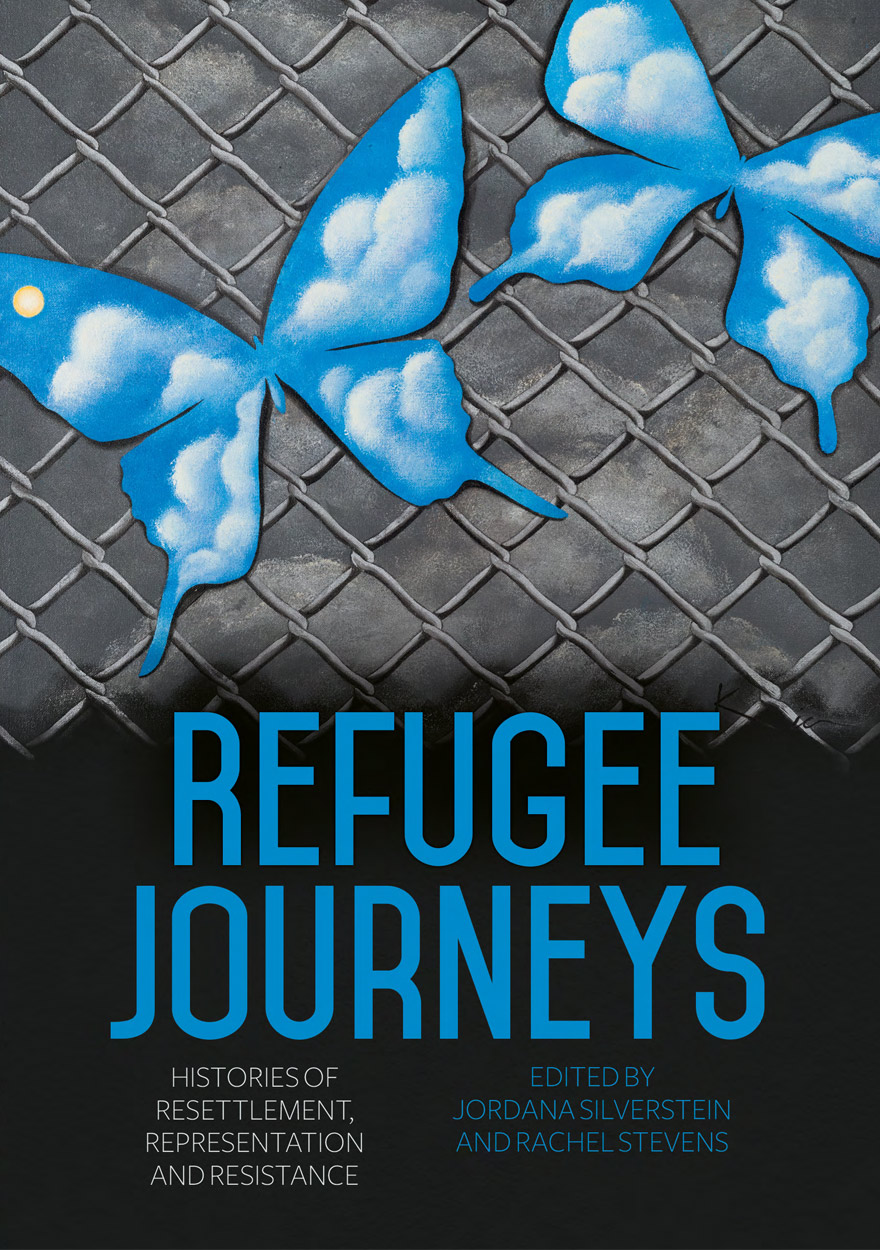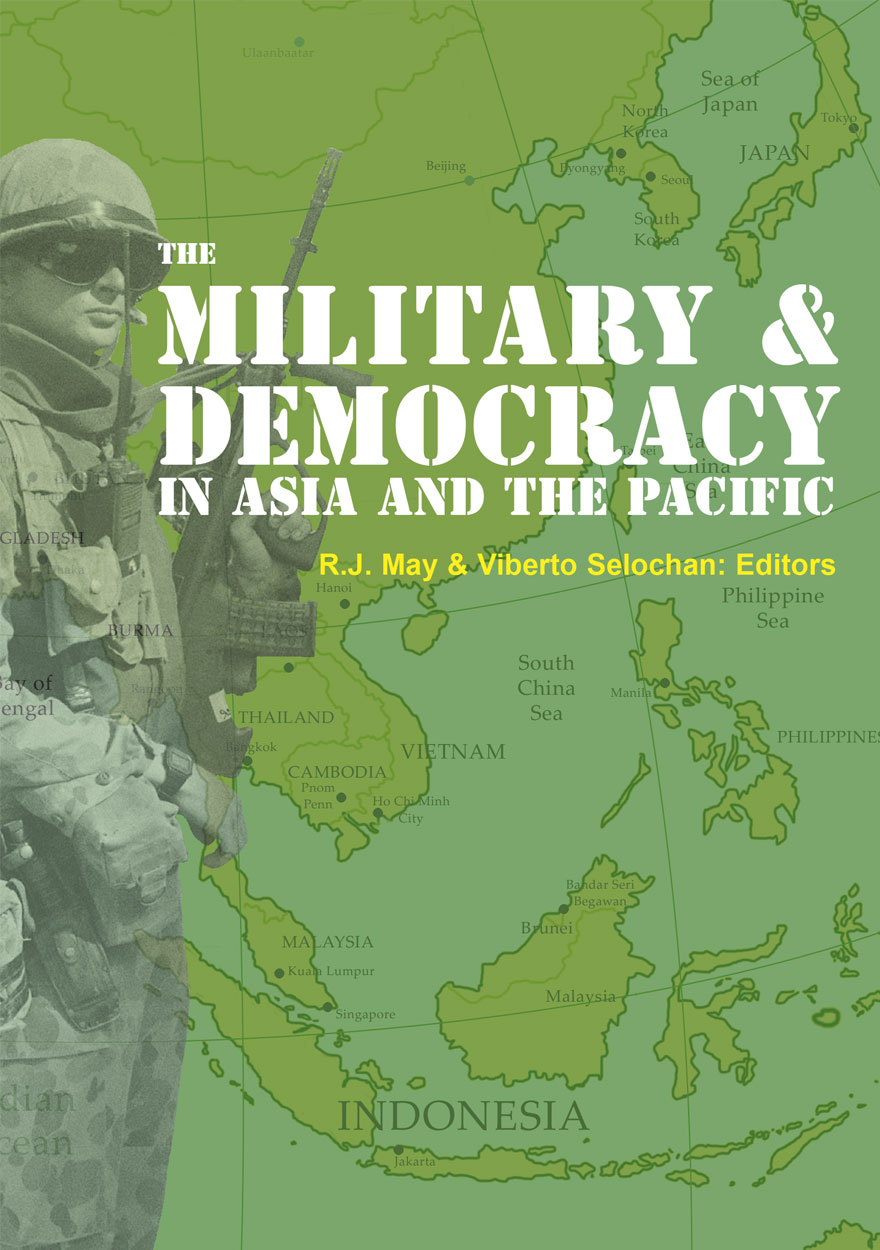Search titles
Displaying results 1 to 5 of 5.

Human Ecology Review: Volume 26, Number 2 »
Publication date: July 2021
This volume is a special issue on ‘Generating Sustainability-Supporting Knowledge on Social Networks in the Governance and Management of Social–Ecological Systems’, compiled by guest editors Marion Glaser and Barbara Schröter. The collection of papers demonstrates the capacity of social network analysis to contribute to understanding the interactions of actors and institutions. María García and Örjan Bodin set out to differentiate to what extent power resides within network structures and whether it is rooted in actor attributes such as class and wealth. Marco Scotti, Daniel Pereira, and Antonio Bodini present loop analysis as a qualitative tool for linking disciplinary domains in integrated analyses of the natural and social science variables. Marina Corrêa and her co-authors examine the role and potential of public sector managers for advancing the ecosystem service-oriented management of the social–ecological systems. Philipp Gorris and Marion Glaser focus on the information transmission capacity and the robustness of actor networks in different approaches to collaborative governance of coastal and marine natural resources. Theresa Schwenke and Eike Holzkämper present a bibliometric analysis of publications that address both environmental governance and social (–ecological) network analysis. Ben Nagel presents a coastal case study from Bangladesh, one of the countries most vulnerable to climate change. The collection is rounded out by Adam Henry, who focuses on sustainability learning at the organisational level, addressing to what extent an organisation’s position in a larger environmental policy network determines learning outcomes.
Download for free
Not available for purchase

Refugee Journeys »
Histories of Resettlement, Representation and Resistance
Edited by: Jordana Silverstein, Rachel Stevens
Publication date: February 2021
Refugee Journeys presents stories of how governments, the public and the media have responded to the arrival of people seeking asylum, and how these responses have impacted refugees and their lives. Mostly covering the period from 1970 to the present, the chapters provide readers with an understanding of the political, social and historical contexts that have brought us to the current day. This engaging collection of essays also considers possible ways to break existing policy deadlocks, encouraging readers to imagine a future where we carry vastly different ideas about refugees, government policies and national identities.

Cascades of Violence »
War, Crime and Peacebuilding Across South Asia
Authored by: John Braithwaite, Bina D’Costa
Publication date: February 2018
War and crime are cascade phenomena. War cascades across space and time to more war; crime to more crime; crime cascades to war; and war to crime. As a result, war and crime become complex phenomena. That does not mean we cannot understand how to prevent crime and war simultaneously. This book shows, for example, how a cascade analysis leads to an understanding of how refugee camps are nodes of both targeted attack and targeted recruitment into violence. Hence, humanitarian prevention also must target such nodes of risk. This book shows how nonviolence and nondomination can also be made to cascade, shunting cascades of violence into reverse. Complexity theory implies a conclusion that the pursuit of strategies for preventing crime and war is less important than understanding meta strategies. These are meta strategies for how to sequence and escalate many redundant prevention strategies. These themes were explored across seven South Asian societies during eight years of fieldwork.

East Asia Forum Quarterly: Volume 6, Number 1, 2014 »
Publication date: March 2014
East Asia Forum Quarterly grew out of East Asia Forum (EAF) online, which has developed a reputation for providing a platform for the best in Asian analysis, research and policy comment on the Asia Pacific region in world affairs. EAFQ aims to provide a further window onto research in the leading research institutes in Asia and to provide expert comment on current developments within the region. The East Asia Forum Quarterly, like East Asia Forum online, is an initiative of the East Asia Forum (EAF) and its host organisation, the East Asian Bureau of Economic Research (EABER) in the Crawford School of Economics and Government in the College of Asia & the Pacific at The Australian National University.
Download for free
Not available for purchase

The Military and Democracy in Asia and the Pacific »
Edited by: R.J. May, Viberto Selochan
Publication date: March 2004
In The Military and Democracy in Asia and the Pacific, a number of prominent regional specialists take a fresh look at the military’s changing role in selected countries of Asia and the Pacific, particularly with regard to the countries’ performance against criteria of democratic government.
Indonesia, Thailand, the Philippines, Burma, Pakistan, Bangladesh, South Korea, Fiji and Papua New Guinea all fall under the spotlight as the authors examine the role which the military has played in bringing about changes of political regime, and in resisting pressures for change.
Under the auspices of The Australian National University’s Department of Political and Social Change, Research School of Pacific and Asian Studies, and within the context of the Regime Change and Regime Maintenance in Asia and the Pacific project, the following contributors compiled The Military and Democracy in Asia and the Pacific: Emajuddin Ahamed, Suchit Bunbongkarn, Stephanie Lawson, R. J. May, Hasan-Askari Rizvi, Viberto Selochan, Josef Silverstein, Michael Vatikiotis and Yung Myung Kim. The Military and Democracy in Asia and the Pacific provides a sequel to Viberto Selochan’s earlier collection, The Military, the State, and Development in Asia and the Pacific (1991).



